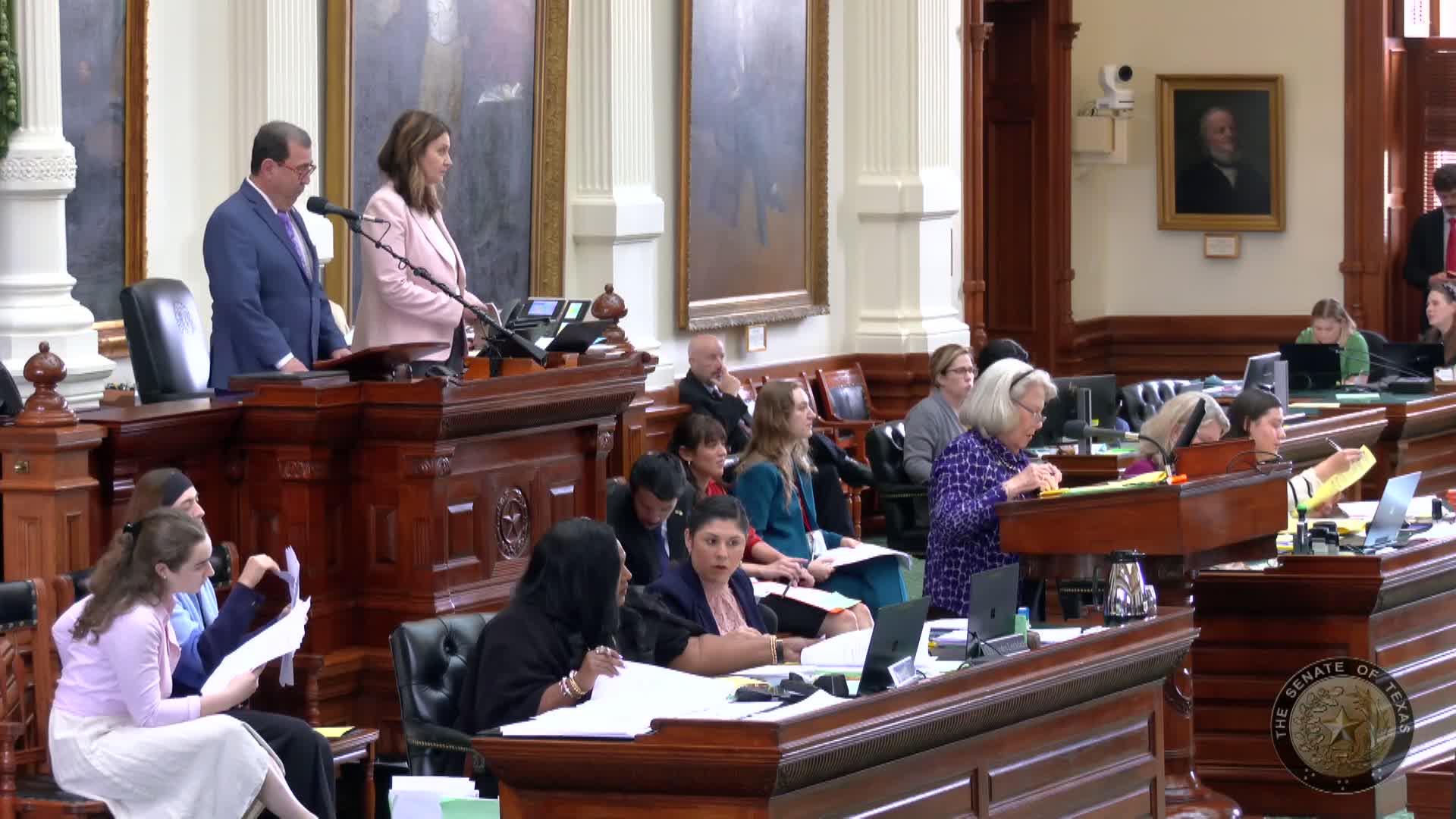Senate advances rural medical access package, creates RAMP program and limits APRN delegation fees in small counties

Summary
Senators passed committee substitute Senate Bill 2695 to remove delegation fees for APRNs in small counties, create a Rural Admissions Medical Program (RAMP) and shift oversight of a rural-delegation pilot to Texas A&M Medical School with chart-review and data collection requirements.
The Texas Senate voted to pass committee substitute Senate Bill 2695, a multi-part package aimed at improving access to primary care and behavioral health in rural counties. The bill removes APRN delegation fees in qualifying rural counties, establishes an education-to-practice pipeline (RAMP) to recruit rural students into medicine, and places oversight for the rural delegation pilot with Texas A&M Medical School.
Sponsor Senator Lois Kolkhorst described the bill as a balance between physician-led teams and expanded primary-care capacity. She said APRNs reported paying “anywhere from 6,000 to $50,000 annually for their delegation agreements,” a cost she said the bill seeks to eliminate in small counties. Kolkhorst moved an adopted floor amendment that increased the population threshold for eligibility from 25,000 to 30,000 and added requirements that physicians review 5% of APRN charts in the delegation program rather than the minimal, once-a-month single-chart review that had been standard.
The amendment also shifted oversight authority for the rural-delegation initiative from the Texas Medical Board to Texas A&M Medical School (to be administered by the school’s rural health program) and required Texas A&M to collect data on delegation agreement counts and interactions. The Texas Medical Board would still collect data on delegation fees charged to APRNs and locations where APRNs practice.
The bill establishes RAMP, a scholarship and pathway program intended to recruit students from rural communities into medical education with summer stipends, mentoring and guaranteed medical-school admission. Kolkhorst said the program models earlier initiatives such as JAMP and is targeted at counties where population and payer mix limit physicians’ economic incentives to practice.
Senator Campbell questioned oversight and chart-review levels during a floor exchange; Kolkhorst said the 5% review strikes a balance and that the amendment grew from committee discussions and stakeholder meetings. The measure passed final passage with 30 ayes and 1 nay.
Senate action: motion to suspend regular order, adoption of floor amendment (increase county threshold to 30,000 and move oversight to Texas A&M Medical School; require 5% chart reviews), passage to engrossment and final passage (30 ayes, 1 nay).

